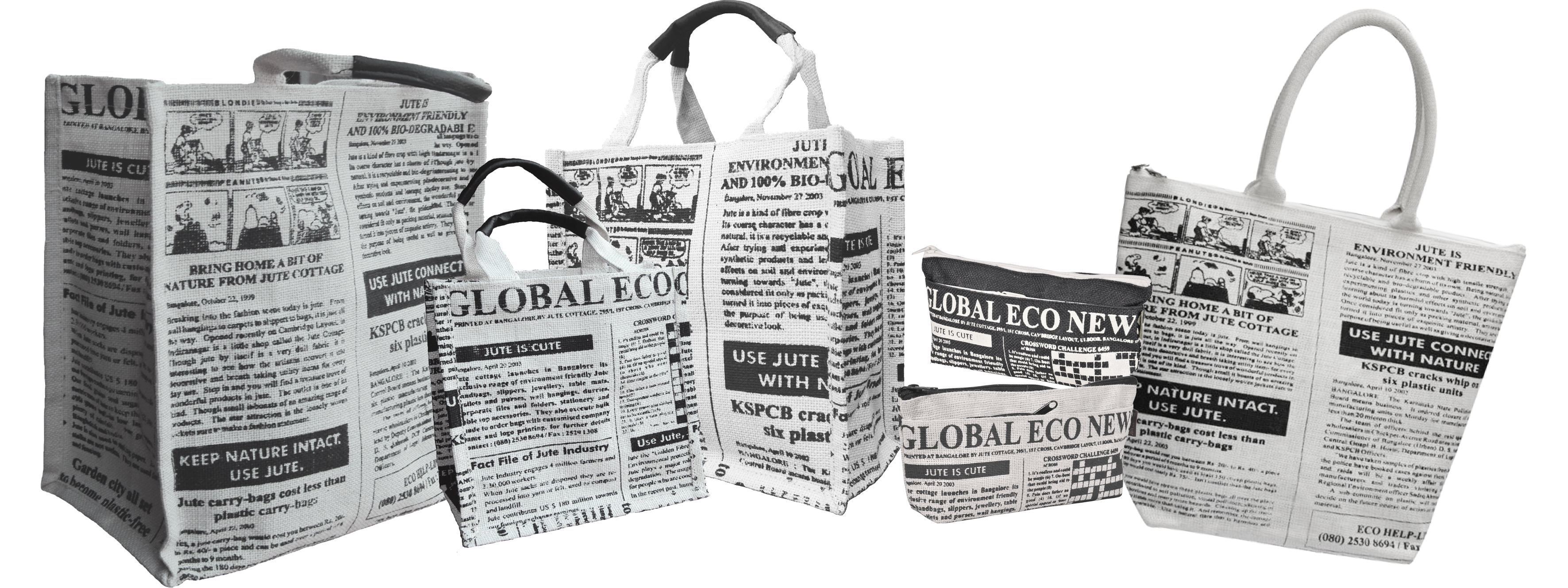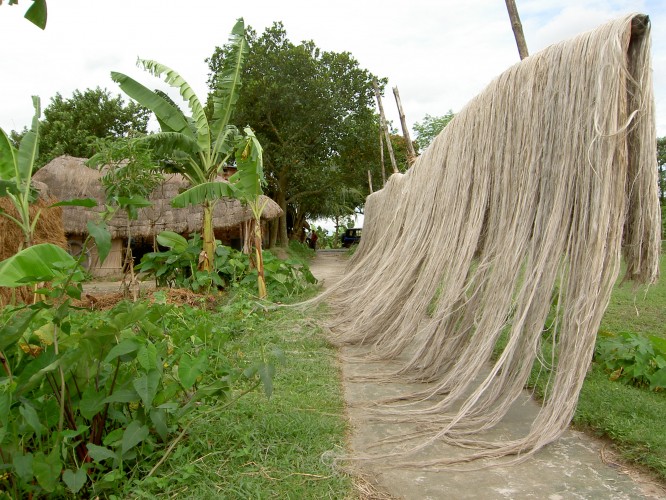Fact-sheet : What makes jute an eco-fibre?

- Jute as a fibre crop is one of the fastest growing one. Jute has high production level as compared to Cotton as it can be harvested every 4 to 6 months.
Jute reaches maturity in under 6 months and offers large crop yield for the area of land it is grown upon. This efficiency of growth means less land is required compared to other crops and therefore reduces the need to encroach upon wilderness and natural habitats. Cotton on the other hand requires twice the amount of land and time to grow.
- Less Pesticide is used to harvest Jute crops as compared to Cotton and other materials. In cotton cultivation heavy doses of chemical fertilizers, pesticide and other chemicals are used. Where these chemicals are used, jute requires very little of them compared to other crops and if at all pesticides are used in Jute cultivation it gets removed during the process of retting.
- Jute actually is known for increasing the soil fertility for future crops (either Jute or other food crops). Jute is commonly rotated with food crops like rice, cereals, vegetables, oilseeds etc. so they massively benefit from the soil nutrients and the less pest used to grow Jute on. Jute Plant sheds about 5-6 MT of green leaves per hectare (i.e. around 14% of the crop) in the field. Jute cropping system enhances soil organic matter through leaf shedding during the growing season and improves nutrient availability in the soil. These green leaves left out after harvesting are pretty rich in micro and macro nutrients and act as a manure for the subsequent crop in the field.
- Jute Plant purifies air – According to studies, 1 hectare of Jute cultivation can release up to 11 tons of oxygen and absorb up to 15 tons of carbon dioxide. The plant absorbs large amounts of carbon dioxide from the atmosphere. Studies also reveal that the CO2 assimilation rate of jute is several times higher than that of any other plant.
- Jute can be a direct replacement for plastic bags and other related products. Plastic bags are made of Petroleum which is depleting at an alarming pace so it significantly reduces burden from Petroleum resources.
- Jute is Bio-Degradable – Unlike plastic, which may take up to 400 – 1000 years to break down, the natural fibres of Jute can be composed or breaks down quickly. It degrades biologically in 1 to 2 years.
- The production of 1 MT of Polypropylene generates five times more waste than that of 1 MT of jute. Additionally, wastes from jute production are biodegradable.
- Jute reduces the effects of plastic pollution – It is a well-known fact about the effect of plastic on our planet. By using Jute, we can reduce this to a much lower extent.
- The processing of jute can be more sustainable in some ways than the processing of synthetic fibres, especially when biological retting is used

- Jute is predominantly a rain fed crop (about 85% of Jute crops are rain fed crops in India according to some data). Even though jute is mostly rain fed, its water footprint is much more sustainable than a cotton crop that uses mostly irrigation and requires over five times of the amount of water needed to grow Jute. Therefore, Jute relies on natural rainfall rather than the extensive & hugely consuming irrigation systems and requires very little water compared to Cotton. Also, since people harvest and extract jute manually it reduces the use of unsustainable industrial processes.
- Though Organic Cotton combats the environmental damage that the use of pesticides cause yet it hasn’t been able to solve the requirement of enormous energy and water consumption issue and the time it takes to replenish the harvests. Cotton or even Organic Cotton for that matter requires huge amount of water and energy to grow and harvest which is why Jute is preferred.
- The inner woody core of the jute plant (called hurd) has the potential to meet the majority of the world's wood needs and create a massive impact on the reduction of deforestation.
Its time to say, Jute is Cute!
Share this article
